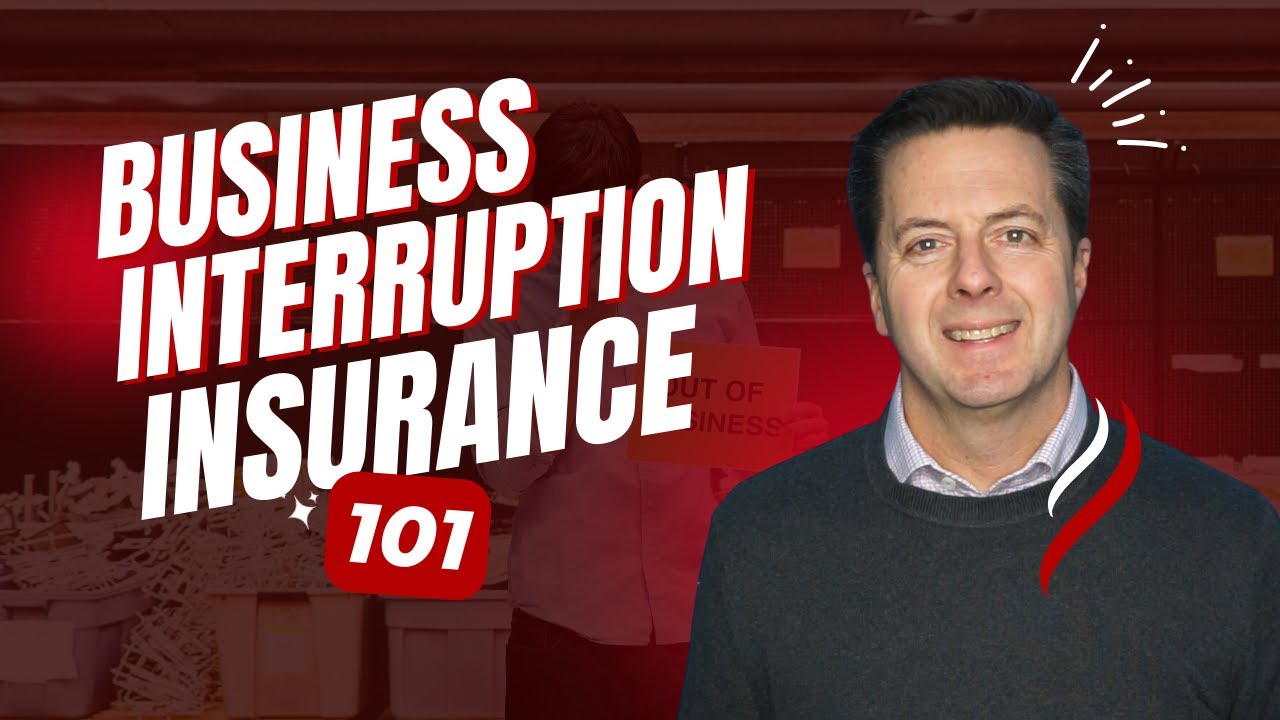Running a business is a rewarding endeavor, but it comes with its fair share of risks. From natural disasters to unexpected events like fires or pandemics, disruptions can strike at any time, leaving your operations in jeopardy. This is where Business Interruption Coverage comes into play—a critical insurance policy that can safeguard your business during unforeseen downtime. In this article, we’ll break down what business interruption coverage is, why it’s essential, and how it can help protect your business when the unexpected happens.
What is Business Interruption Coverage?
Business Interruption Coverage, also known as Business Income Insurance, is a type of insurance that compensates businesses for lost income and operating expenses when they are forced to temporarily close or reduce operations due to a covered event. These events could include natural disasters, fires, theft, or other incidents specified in your policy.
For example, if a fire damages your office or a flood forces you to shut down for weeks, this coverage can help replace lost revenue, pay ongoing expenses like rent and salaries, and even cover the cost of relocating to a temporary workspace.
Read Also – Understanding Business Insurance: What It Is and How It Works
Why is Business Interruption Coverage Important?
- Financial Lifeline During Downtime
When your business is unable to operate, the loss of income can be devastating. Business interruption insurance ensures that you have a financial cushion to keep your business afloat while you recover. - Covers Fixed Costs
Even when your business isn’t generating revenue, fixed costs like rent, utilities, and employee salaries still need to be paid. This coverage helps cover these expenses, preventing further financial strain. - Supports Recovery and Rebuilding
Recovering from a disaster or disruption takes time and resources. Business interruption insurance can provide the funds needed to repair damage, replace equipment, and get back to business as usual. - Peace of Mind
Knowing that your business is protected against unexpected events allows you to focus on growth and innovation, rather than worrying about potential risks.
What Does Business Interruption Coverage Typically Include?
While policies vary, most business interruption coverage includes:
- Lost Revenue: Compensation for income lost during the downtime.
- Operating Expenses: Coverage for ongoing costs like rent, utilities, and payroll.
- Temporary Relocation: Costs associated with moving to a temporary location.
- Extra Expenses: Additional costs incurred to minimize the disruption, such as renting equipment or hiring temporary staff.
It’s important to note that business interruption insurance is typically tied to a specific cause of loss, such as fire or natural disaster, and may not cover events like pandemics unless explicitly included in the policy.
Read Also – Top 5 Business Insurance Policies Every Small Business Should Consider
How to Choose the Right Business Interruption Coverage
- Assess Your Risks
Consider the specific risks your business faces, such as location-based hazards (e.g., floods, earthquakes) or industry-specific challenges. - Calculate Your Coverage Needs
Determine how much business interruption insurance you need by estimating your potential lost income and fixed expenses during a shutdown. - Review Policy Exclusions
Carefully read your policy to understand what is and isn’t covered. For example, some policies exclude pandemics or require additional endorsements for certain events. - Work with an Experienced Agent
An insurance professional can help you tailor a policy that meets your business’s unique needs and ensures you’re adequately protected.
Common Misconceptions About Business Interruption Coverage
- “My General Liability Policy Covers Interruptions.”
General liability insurance covers third-party claims, not lost income or operating expenses. Business interruption coverage is a separate policy or add-on. - “I Don’t Need It Because Disruptions Are Rare.”
Even the most well-run businesses can face unexpected disruptions. It’s better to be prepared than to risk financial ruin. - “It Covers All Types of Disruptions.”
Business interruption insurance is tied to specific perils outlined in your policy. Events like pandemics or cyberattacks may require additional coverage.
Real-Life Example: How Business Interruption Coverage Saved a Small Business
Imagine a family-owned restaurant that suffered significant damage from a kitchen fire. The restaurant had to close for two months for repairs. Thanks to their business interruption insurance, they were able to:
- Continue paying their staff.
- Cover rent and utilities during the closure.
- Offset lost revenue until they reopened.
Without this coverage, the restaurant might have faced permanent closure.
Read Also – How to Apply for Business Insurance in 2025: A Step-by-Step Guide
Final Thoughts: Is Business Interruption Coverage Worth It?
The short answer is yes. Business interruption coverage is a vital tool for protecting your business from the financial fallout of unexpected events. While no one likes to think about worst-case scenarios, being prepared can make all the difference in ensuring your business’s survival and long-term success.
If you haven’t already, take the time to review your current insurance policies and consider adding business interruption insurance. It’s a small investment that can provide significant peace of mind and financial security when you need it most.
By understanding and investing in business interruption coverage, you’re not just protecting your business—you’re safeguarding your hard work, your employees, and your future. Don’t wait until it’s too late; take action today to ensure your business is prepared for whatever comes its way.
Read Also –
How to Apply for Business Insurance in 2025: A Step-by-Step Guide
Top 5 Business Insurance Policies Every Small Business Should Consider
Understanding Business Insurance: What It Is and How It Works
